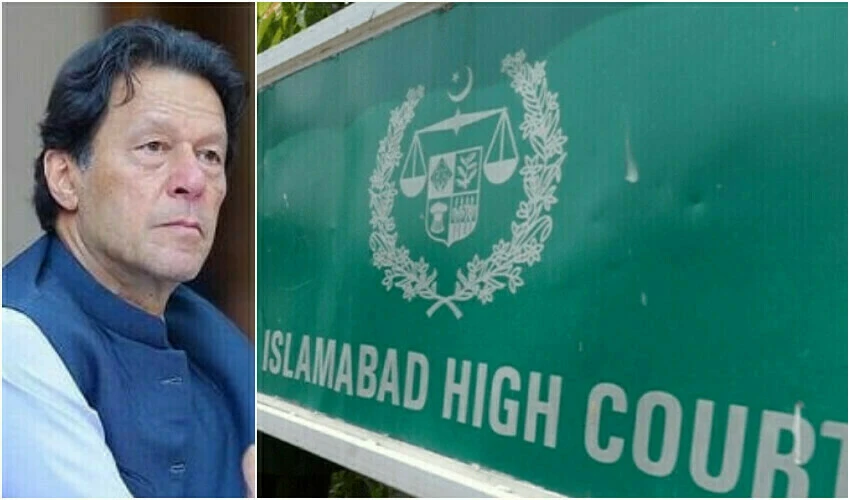Imran Khan Toshakhana Conviction, Chairman of Pakistan Tehreek-e-Insaf, seeks justice as he challenges his Toshakhana case conviction. On August 22, the Islamabad High Court panel hears his plea, citing ‘illegal’ conviction, lack of evidence, and procedural errors. Khan’s bid for acquittal and legal vindication takes center stage in this high-stakes legal battle.
Quest for Vindication: Imran Khan Fights Conviction in Landmark Toshakhana Case
ISLAMABAD: On August 22, a two-member panel of the Islamabad High Court (IHC) will hear Imran Khan’s plea challenging his conviction in the Toshakhana case of Imran Khan the chairman of the Pakistan Tehreek-e-Insaf (PTI).
The case will be heard by Justice Tariq Mehmood Jahangiri and Chief Justice Aamer Farooq of the IHC.
The PTI leader had petitioned the high court to declare the trial court’s conviction and sentence against him “illegal” in an effort to overturn them.
Respectfully, the court is requested to graciously set aside the impugned judgment dated 05.08.2023, declare the appellant’s conviction and sentence as unlawful and lacking legal basis, and acquit the appellant from the charges framed against him.
On August 5, 2023, Additional District and Sessions Judge (ADSJ) Humayun Dilawar convicted the PTI chairman to three years in jail and levied a fine of Rs. 100,000 after finding Khan guilty of graft in the Toshakhana case – a development that resulted in a five-year disqualification.
On a variety of reasons, the petition asks for the condemnation and complete reversal of the conviction. The petition for the request lists the disputed judgment’s “totally misdirected” nature as one of its justifications.
The petition continued, “The prosecution has utterly failed to discharge its onus against the appellant and, as a result, the impugned judgement is unlawful.”
In addition, the petition claimed that ADSJ Dilawar’s decision was founded on “misreading” and “hyper-technical” reasons.
“The learned trial judge has returned a finding of guilt against the accused on hyper-technical grounds, and that too by misreading and misconceiving the law, and not on the basis of any tangible evidence in support of the charge framed against the accused, which evidence, nonetheless, is utterly lacking in the instant case,” said the attorney for the accused.
The appeal further argued that the court had failed to adequately take into account a number of essential issues, including the fact that, in accordance with his knowledge, Khan’s accountant had noted the price at which these assets were purchased in the “relevant column of Form-B,” under “Precious Items.”
In reality, the complaint continued, “All the learned judge has to say regarding the appellant’s defence is to make a cursory almost derisive reference to it.”
The appeal further claimed that the judge allegedly took less than 30 minutes to dictate the more than 35 pages that make up the challenged ruling, rendering the trial unfair and the result “tainted with bias and a nullity in the eye of the law.”
“The assailed judgement being rendered even before hearing the appellant’s counsel in favour of the defence is an annulment in the eye of the law and deserves to be set aside as such,” the petition argued.
The case?
Government officials are allowed to keep presents that are of modest value under the norms of Toshakhana, a Persian term that means “treasure house,” but they are required to pay a much reduced charge for lavish gifts.
Since the claims that Imran Khan bought the presents he received as prime minister at bargain prices and sold them off in the open market for enormous profits first surfaced, the Toshakhana has been the subject of intense scrutiny.
The 70-year-old former cricketer-turned-politician was charged with abusing his position as premier from 2018 to 2022 to purchase and resell goods that were brought back from trips abroad and costing more than Rs140 million ($635,000).
According to government authorities, among the presents were watches supplied by a royal family. These officials have previously claimed that Khan’s advisers sold the watches in Dubai.
Presents included seven watches, with six originating from the watchmaker Rolex, and the most expensive being a ‘Master Graff limited edition’ valued at 85 million Pakistani rupees ($385,000).

